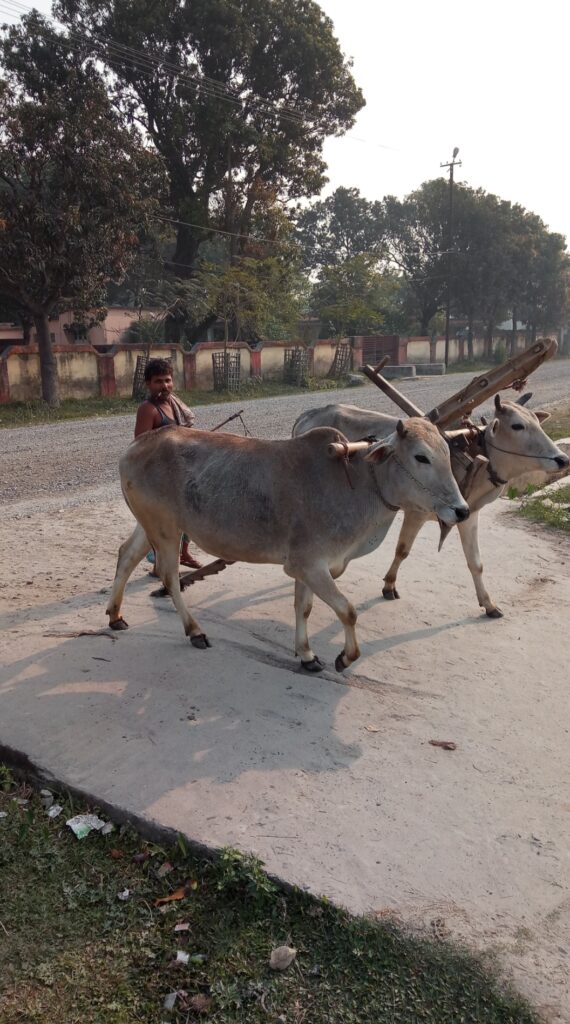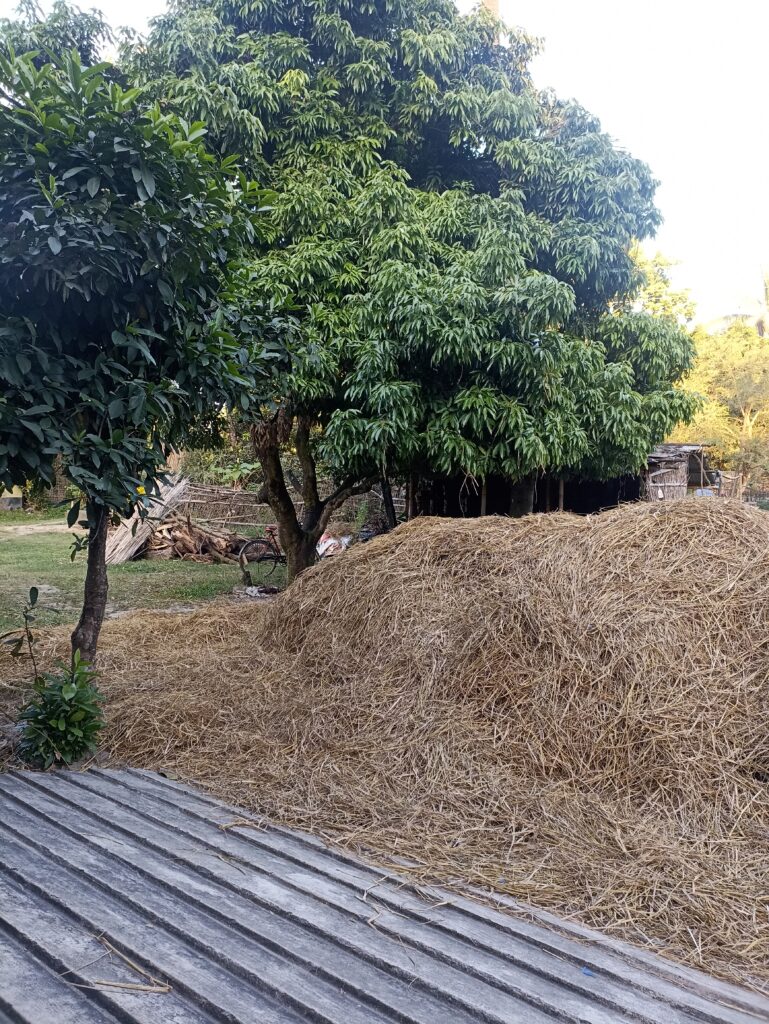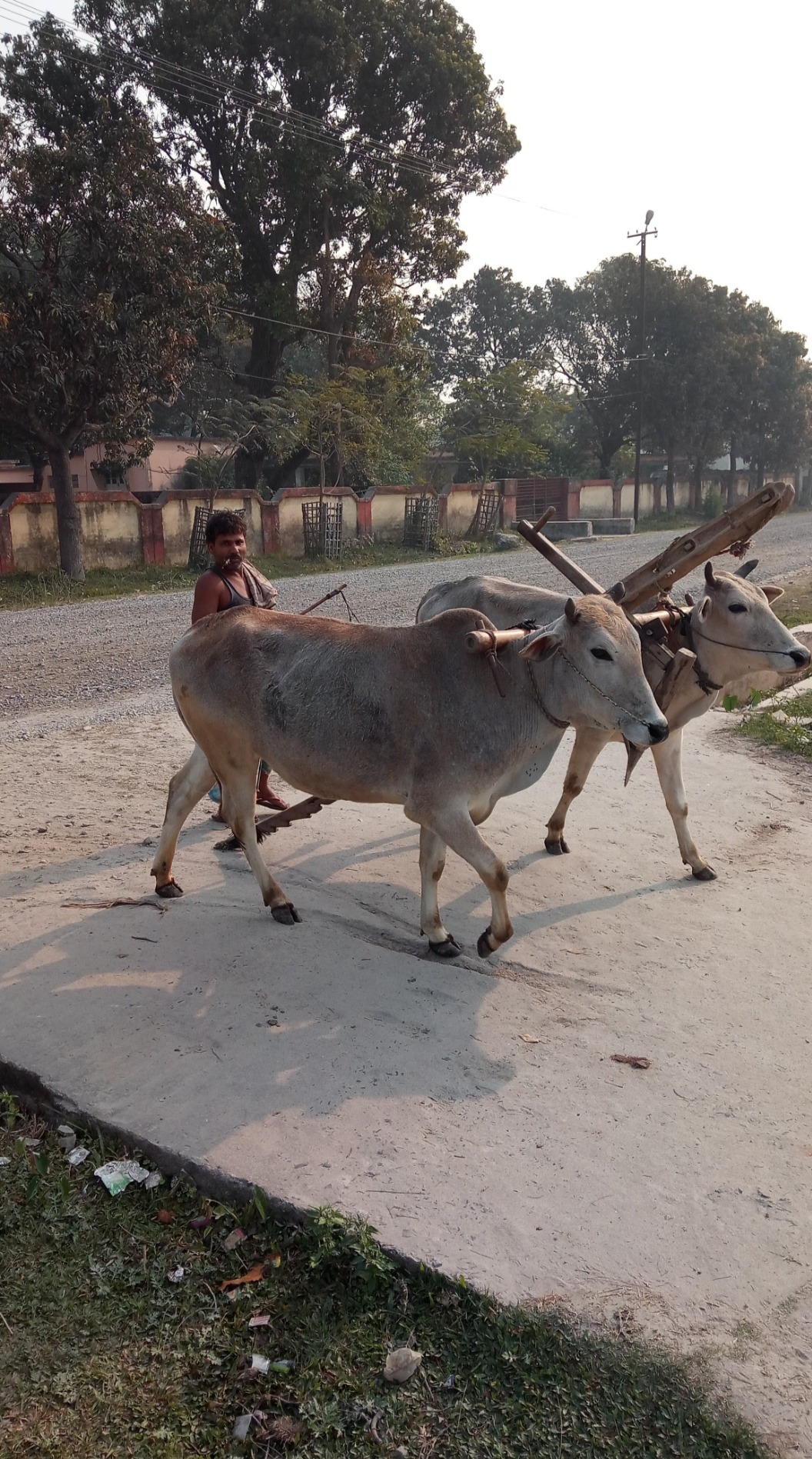Villages are not always synonymous with poverty and inconvenience. They are rich and interesting in many ways. Just take a pause, stare at them and listen to the loudness of their serenity.

Harmony with Nature.
Life in villages seems to be in no hurry. It takes its time and lives to its full. It remains in conformity with nature and environment.
Village life sets your body clock to resonate with the planetary schedules. Simplicity here, transcends into cosmological scale, where you find village people invariably stuck to ‘Early to Bed, Early to Rise’ kind of routine.
A farmer in steppes of East Europe has to rise at the crack of dawn to bring his cattle, poultry birds out of shelter. They have to feed and milk their animals at right time and have to move to their fields with their tools.
Similarly a farmer in Gangetic plains of India retires to bed around 8 P.M. and wakes up next morning well before sunrise. He has to clean the mangers of his cattle, put their feed in, and mop the cattle shed. Fresh cow dungs have to be removed to some other assigned place, where these either have to be converted in to cow dung cakes or have to be stored for getting them decomposed in to manures. Dried cow dungs cake are emergency cooking fuel for farmers, especially during rainy season.
Fishing villages in coastal areas have their day and nights guided by many factors related to oceanic environment. They need to know the dynamics of home water. They need to know the behaviour of fish they are targeting. They need to love being outside and love the nature.
Shepherds in mountains graze their herds for a few hours in the morning, then resting through the high heat of the noon, and then grazing for the few hours in the evening.
Thus every activity in village, is in absolute conjunction with the diurnal and nocturnal attributes of the environment. Man, birds, cattle, ants, insects, flowers, dew, all are time bound in their activity.
In cities man has interfered too much with nature. Children of metro cities have no experience how dark starry nights look like. Or, how calm and soothing it feels while lying on the roofs under moonlight and staring at the moon. Glow of bulbs and neon signs have disturbed the darkness regime of night sky and this has also confused the birds whose biological responses are sensitive to sky light.
Also read: Life in a village of India.
Villages Are the Places, Where Life Values Were Born and Established.

Based on local resources, geography and climate, people of villages have their different occupations. Weavers, shepherds, farmers, artisans all complement each other by their specialized services. These village based occupations have inspired many quotes which depict the values and essence of life.
Quotes related to Farmers:
“When tillage begins, other arts follow.”
“A farmer is a magician, who produces money from the mud.”
“Those too lazy to plough in right season, will have no food at the harvest.”
Quotes related to milkman:
“If not milked regularly, cow looses its milk.”
“I hear the rattle of milkman on the stair. Sure that is music,”
“Democracy means that if doorbells ring in the early morning, it is likely to be milkman.”
Quotes related to fisherman:
“Many men go fishing all their lives without knowing that it is not fish they are after.”
Quotes related to weaver:
“A good life is like weaving. Energy is created in tension. The struggle, the pull and the tug are everything.”
Quotes related to artisans:
“Every man is artisan of his own future.”
“There is something deeply satisfying in shaping something with your own hands.”
“Art is not a handicraft, it is the transmission of the feeling the artist has experienced.”
Quotes related to pottery:
“Expectations are like fine pottery. The harder you held them, the more likely they were to crack.”
“Time is clay; make something.”
“Clay is molded to make a vessel, but the utility of the vessel lies in the space where there is nothing.”
At villages, You Realise The Mother Son Relation Between Earth and Man.

Spend a few days in a village, and realisation will dawn upon you that earth plays a role of mother for man. Earth provides cradle for the growth and development of man and civilization. German thinker E.C. Semple explains this relationship in beautiful words, “Man is product of earth’s surface… earth has mothered him, fed him, set him tasks, directed his thoughts, confronted him with difficulties that have strengthened his body and sharpened his wits.”
Thus villages are places where environment with all its odds and opportunities becomes very much visible and discernible. You can analyse here that the particular course of action taken by the man is in accordance with the hints whispered by the mother earth in to his ears!
Villages Tell You How Giving Away Is a Bliss.

Village life is full of examples of cooperative, collective and sharing approach. Pleasure of giving away is many fold higher than the pleasure of owning.
Trees bear fruits, but they are available to all. cow’s udder is full of milk, but cow itself doesn’t consume it. Fields have food grains, but these are meant for feeding millions of people. Clouds carry water which is utilised by the earth. Village people grow with many such examples present in nature. And knowingly or unknowingly all these lessons get registered in their subconscious.
Gary Bebout of Knox county ( Ohio, USA ), describes the unwritten etiquette of the county when he says, “if someone is sick, the neighbours get together and do their crops for them.”
Village people of India, often share their first round of produce especially fruits, vegetables and even the cow milk ( after new calf is born ), with their neighbours.
Villages Teach You The Lessons Of Sustainable Development.
Urban culture especially in developing countries, has lost its respect for nature. Modern man has blindly exploited the natural resources beyond their capacity to regenerate.
Village people not only try to live in harmony with nature, but they respect the nature. They feel the pain of mother earth. They leave their lands fallow to recuperate its fertility. They allocate lands for pastures. They use their forests and water resources within sustainable limits. Similarly a concerned fisherman attaches importance to selective harvesting, i.e. keeping only what they can eat, and release some of the better fish for future generation of fish and people.
The famous Hindi novelist Munshi Premchand writes, “Indian peasant is too nature fearing. He perceives failure of rains, occurrence of flood and droughts as punishment for any of his wrong doings.” Such ethical values in village life encourage them to adopt sustainable living approach.
It Is Villages, Where Festivals Were Born and Nurtured.
Popular festivals of any country have their origin in agricultural activities in villages and rural setting.
If you categorize at more deeper level, the festivals in India like Lohri, Makar Sankranti, Pongal, Vasant Panchami, Holi, Baisakhi these all are predominantly related to celebration of onset of particular agricultural season, advent of new crops and its successful harvesting etc.
Similarly, in Portugal, they have year round cultural activity and festivals which often revolve around food. These are festivals of bread, olive oil, garlic, cheese and wine. On these occasions groups perform traditional dance and songs. St. John festival at Porto, dates back to 14th century. This most popular food festival is observed to honour the Sun God and to celebrate the year’s good harvest.
So, when the nature showers foodgrains in the fields of farmers, or bring huge catches to the nets of fisherman at particular time of year, or when cheese and wine reach their perfect flavour and aroma, it is time to celebrate. The harvest brings immense pleasure and contentment to the hearts of the family members of these farmers, planters, fishermen, and dairy owners. They feel rewarded , blessed and exalted.
Celebrations at villages are not driven by the lust or luxury, but are driven by the exhilaration of hard work and diligence. Children here, also learn the lessons and traditions of their parental occupation. They realise that real happiness emanates from the harmony between man and nature. And it endures.
Village Life Keeps You Inspiring and Learning.
French thinker Elisee Reclus, had a sharp eye on deplorable aspect of materialistic culture of urban life. He, in extreme cases, viewed cities, “where all grace and poetry have disappeared from landscape, imagination dies out, the mind is impoverished, and a spirit of routine and servility takes possession of the soul.”
Village life on the other hand, is for many reasons preferable to the life of cities. Village life pushes you for many physical works. You need to learn taking care of your animals, your trees, your water bodies and land. Eventually you find many ideas, you never knew!
You will work with soil, will hear the melody of swaying plants, will hear the rustle of leaves, will understand the season’s role in raising crops. And eventually, you will begin to clearly understand the metamorphosis of all this work culture in to folk songs, festivals, tradition and culture of that region.
Villages Teach You Social Cohesion.
In village life you must have to respect and accept the culture of social cohesion. Here there is no place for lifestyle related diseases like loneliness, depression, blood pressure, sugar etc. Everyone is your family. You know every person in village. If you fall sick, every person in village will talk and ask about your health. Guest to a family becomes guest of entire village. This is very much true and noticeable in oriental world, which I belong to.
In villages of India, you will find a large verandah in the front portion of house which has enough sitting space for eight to ten people. This place is used for relaxing or for spending the leisure hours with neighbours and other people. A range of topics are discussed here related to day to day life, agriculture, market, politics, or references from some epic. Many old persons interact here with children by telling them stories in the early hours of night. This reminds of a sharp contrast with cities where they have a king size bathroom, symbolising privacy and preference for personal life, where as village people have king size verandahs symbolising importance of community life.
Finally…
In villages, you can not remain aloof. And this adds many dimensions to your personality. Here you learn creating, protecting, preserving, foreseeing, caring, sharing, intermingling. Village life is very practical and direct. Here only, you can catch the true glimpse of a region’s culture, unfiltered and in raw.

